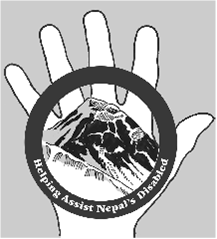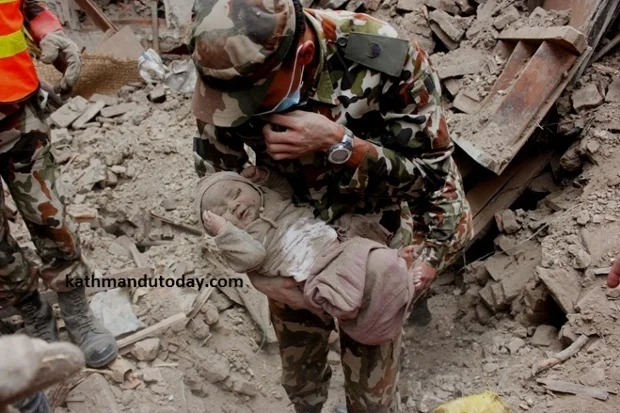The 2015 Nepal earthquake (the Himalayan earthquake)[7][8] which killed nearly 6,000 people and injured more than twice as many as of 30 April 2015[update],[i] occurred at 11:56 NST on 25 April with a moment magnitude (Mw) of 7.8 or 8.1Ms[2] and a maximum Mercalli Intensity of IX (Violent). Its epicenter was approximately 34 km (21 mi) east-southeast of Lamjung, Nepal, and its hypocenter was at a depth of approximately 15 km (9.3 mi).[1]
It was the most powerful disaster to strike Nepal since the 1934 Nepal–Bihar earthquake.[9][10][11] Some casualties have also been reported in the adjoining areas of India, China, and Bangladesh. India responded with Operation Maitri for rescue and relief in Nepal by its armed forces[12][13] and also evacuated Indian and foreign citizens from Nepal.
The earthquake triggered an avalanche on Mount Everest, killing at least 19,[14] making it the deadliest day on the mountain in history.[15] It triggered another huge avalanche in Langtang valley, where 250 are now missing.[16] Centuries-old buildings were destroyed at UNESCO World Heritage sites in the Kathmandu Valley, including some at the Kathmandu Durbar Square, the Patan Durbar Square and the Bhaktapur Durbar Square. Nepal's government has declared three days of mourning after the quake.[17]
Geophysicists and other experts had warned for decades that Nepal was vulnerable to a deadly earthquake, particularly because of its geology, urbanization, and architecture.[18][19]
Continued aftershocks occurred throughout Nepal, with one shock reaching a magnitude of 6.7 on 26 April at 12:54:08 NST.[4] The country is at continued risk of landslides as well.[20]
Please visit the news section for the latest news on our trip

